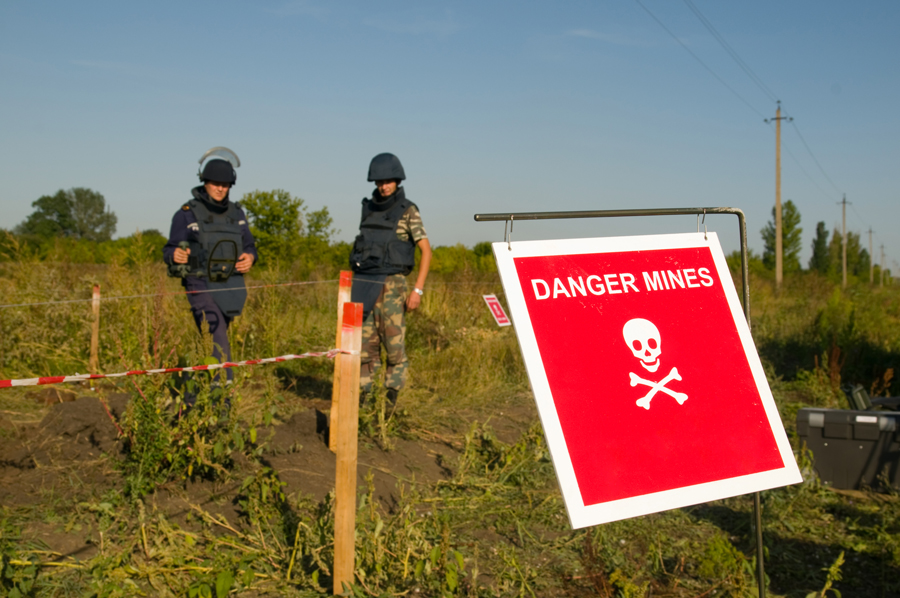SCEG companies are expected to be well regulated and compliant: embracing international security standards and placing human rights at the core of their business models. To achieve these objectives good governance is a fundamental requisite.
A Governance Policy and Staff Handbook are two critical documents that ensure the efficient running of a company by outlining guidance to board members and other company staff. Using these documents as a template will allow you to put together comprehensive and detailed documents for distribution within your company. These should be drafted in a way to address questions staff or board members may have in relation to the company procedures.
Company Governance Policy
The Governance Policy outlines the practices and processes by which your company is directed and controlled. It also set rules, procedures, and other informational guidelines for the members of the board.
Company Staff Handbook
The Staff Handbook is an important ‘living’ document. It outlines your company history and culture, its policies and contains workplace rules, standards and procedures.
| Proelium Law will review these documents regularly and make changes as required to ensure that the example templates on the website are up-to-date.www.proeliumlaw.com |
Standards
Private risk and security companies are a key enabler to companies operating overseas in fragile states, thereby contributing as well as directly to the economic growth. Clients rightly expect their security to be provided by highly reputable companies. The private risk and security sector has worked proactively with governments and NGOs over the past decade to achieve international agreements and standards that test and monitor the professionalism of individual companies. The UK sector has led this work since 2011 under the umbrella of Security in Complex Environments Group (SCEG), the UK Government’s industry partner on standards and regulation.
All SCEG companies support the UK Government’s approach to the regulation of companies who operate in this sector. SCEG encourages adherence to voluntary codes and associations coupled with rigorous independent third-party accredited certification against approved international standards. SCEG members are expected to be compliant with evolving human rights legislation, regulations and principles as relevant and applicable to security in complex environments. These include the UN Global Compact. UN Guiding Principles on Business and Human Tights, Voluntary Principles on Security and Human Rights, Voluntary Principles on Security and Human Rights, the International Code of Conduct for Private Security Service Providers, the Modern Slavery Act and the Montreux Document.
SCEG companies are required to demonstrate that they have achieved internationally accredited certification or intend within 2 years of joining SCEG to be certified, against relevant standards including where appropriate PSC1, ISO 18788 and ISO 28007 depending on the nature of the company’s operations. These standards are important and clients considering contracting with a security company should ask for evidence of certification which has been produced by an internationally accredited certification body.
Certification
Ensuring your certification to PSC1, ISO18788 and ISO28007 has the most commercial impact for your company
Accreditation of the Certification Body is the means by which the UK Accreditation Service assesses the competence and integrity of Certification Bodies offering evaluation services. Not all Certification Bodies offer accredited certification. When looking for a Certification Body (CB) to assess your company to PSC1, ISO18788 and/or ISO29007 you may therefore be offered a service by non-accredited Certification Bodies. You need to be aware of the benefits and risks associated with your choice of Certification Body.
The role of the United Kingdom Accreditation Service (UKAS)
UKAS is appointed as the UK’s national accreditation body by the Accreditation Regulations 2009 (SI No 3155/2009) and the EU regulation (EC) 765/2008 and operates under a Memorandum of Understanding with the United Kingdom Government through the Security State for Business, Energy and Industrial Strategy.
Furthermore, UKAS itself is a member of the International Accreditation Forum, the IAF MLA, which will only admit National Accreditation Bodies as members after a stringent evaluation of their operations by a peer evaluation team.
UKAS uses well-established, transparent and reputable assessment procedures to verify the competence of CBs. This means clients of the CB can be confident of the competence of their auditors.
UKAS accreditation is recognised and accepted globally, UKAS accredited certification therefore opens up opportunities overseas.
Benefits to Companies of Accreditation of accredited certification
Private Security Companies and their supply chain buy independent evaluations either through choice (to reduce the risk) or as a consequence of legal requirements. Selecting an Accredited Certification Body to carry out the audit is an essential tool for decision-making and risk management:
- Organisations can save time and money by selecting an Accredited Certification Body and therefore a competent supplier.
- Using an accredited body to carry out an independent evaluation helps demonstrate due diligence in the event of legal action.
- Accreditation to internationally recognised standards can proved a competitive advantage and facilitate access to export markets internationally. For example, full membership of the International Code of Conduct Association (ICoCA) requires accredited certification.
- Certification to PSC1, ISO18788 or ISO28007 must be carried out by an accredited Certification Body. Ask the Certification Body to show you their certificate of accreditation and verify this through the UKAS website.
Benefits to Government Procuring Services from Companies with Accredited Certification
Accreditation is increasingly being recognised as a valuable tool across a wide range of Government policy areas including better regulation, good governance, fair markets and public confidence. It is already being used by Government as an effective market-led tool for delivering policy more efficiently and to help deliver on its obligations for example in Private and Maritime security.
The benefits of collaborating with UKAS can:
- Reduce the need for central and local government to employ their own specialist assessment personnel. Accreditation provides the assurance for Government to rely on commercial providers of evaluation and inspection services.
- Build business and public trust.
- Support regulation whilst ensuring the reliability of activities that have the potential to impact on public confidence, health and safety or the environment.
- Enable innovation in the private and public sectors.
Benefits to Certification Bodies of being accredited by UKAS
In some sectors, accreditation is a requirement before offering certain; in others it is a de facto ‘licence’ to trade in that key purchasers expect it. It provides the following benefits:
Competitive advantage: accreditation provides independent assurance that your staff are competent. It can set you apart from the competition an enable you to compete with larger organisations.
Market access: accreditation is specified by an increasing number of public and private sector organisations. UKAS accreditation is also recognised and accepted globally, therefore opening up opportunities overseas.
Accreditation can highlight gaps in capability, thereby providing the opportunity for improved organisational efficiency and outputs.
There are a number of insurance brokers and underwriters that recognise accreditation as an important factor in assessing risk and my therefore offer lower premiums.
Certification Bodies in SCEG
Within SCEG there are two Certification Bodies (CBs) who are Accredited under the International Accreditation Forum Multilateral Recognition Forum (IAF MLA) by the United Kingdom Accreditation Service. These CBs are authorised to issue accredited certification to security companies who have successfully completed a rigorous third-party audit process which covers from Board level out to the physical point of service delivery – often in austere and challenging environments, covering policy, procedures and practice, and encompassing human rights obligations. The 2 Certification Bodies are:
- Intertek www.intertek.com
- MSS Global www.mssglobal.com
International Security Standards PSC1 ISO 18788 and ISO 28007
ISO 28007 (Maritime)
PSC1 (Land)
ISO 18788
ICoCA
If you would like to search for any non SCEG companies accredited certifications, you can do so via the following link – IAF Certification Validation.
 |
 |
Last updated April 2025

